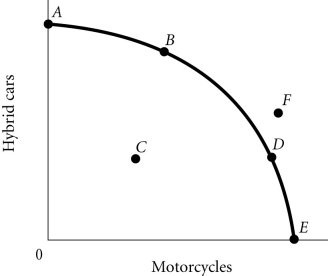The market system is an economic system that:
a. Gives the government the right to tax individuals and corporations for the production of capital goods
b. Produces more capital goods than consumer goods
c. Gives private individuals and institutions the right to own resources used in production
d. Produces more consumer goods than capital goods
c. Gives private individuals and institutions the right to own resources used in production
You might also like to view...
Exhibit 30-3 Costs of Eliminating:Firm A Firm B Firm C 1st ton of pollution$ 30 $ 50 $ 600 2nd ton of pollution$ 70 $ 90 $ 700 3rd ton of pollution$125 $150 $ 900 4th ton of pollution$200 $250 $1,300 Refer to Exhibit 30-3. Suppose that Firms A, B, and C are the only polluters in the state and that each emits 4 tons of pollution into the atmosphere. To cut the level of pollution in half the government issues two transferable pollution permits to each firm (a cap and trade policy). What is the total cost savings to society of decreasing pollution to half its present level if firm C buys one pollution permit from firm A and one pollution permit from firm B compared to if there were a government mandate for each firm to cut pollution by one-half?
A. $515 B. $1,300 C. $1,380 D. $965 E. $1,025
Refer to the information provided in Figure 2.4 below to answer the question(s) that follow. Figure 2.4According to Figure 2.4, as the economy moves from Point D to Point B, the opportunity cost of hybrid cars, measured in terms of motorcycles,
Figure 2.4According to Figure 2.4, as the economy moves from Point D to Point B, the opportunity cost of hybrid cars, measured in terms of motorcycles,
A. initially increases, then decreases. B. increases. C. remains constant. D. decreases.